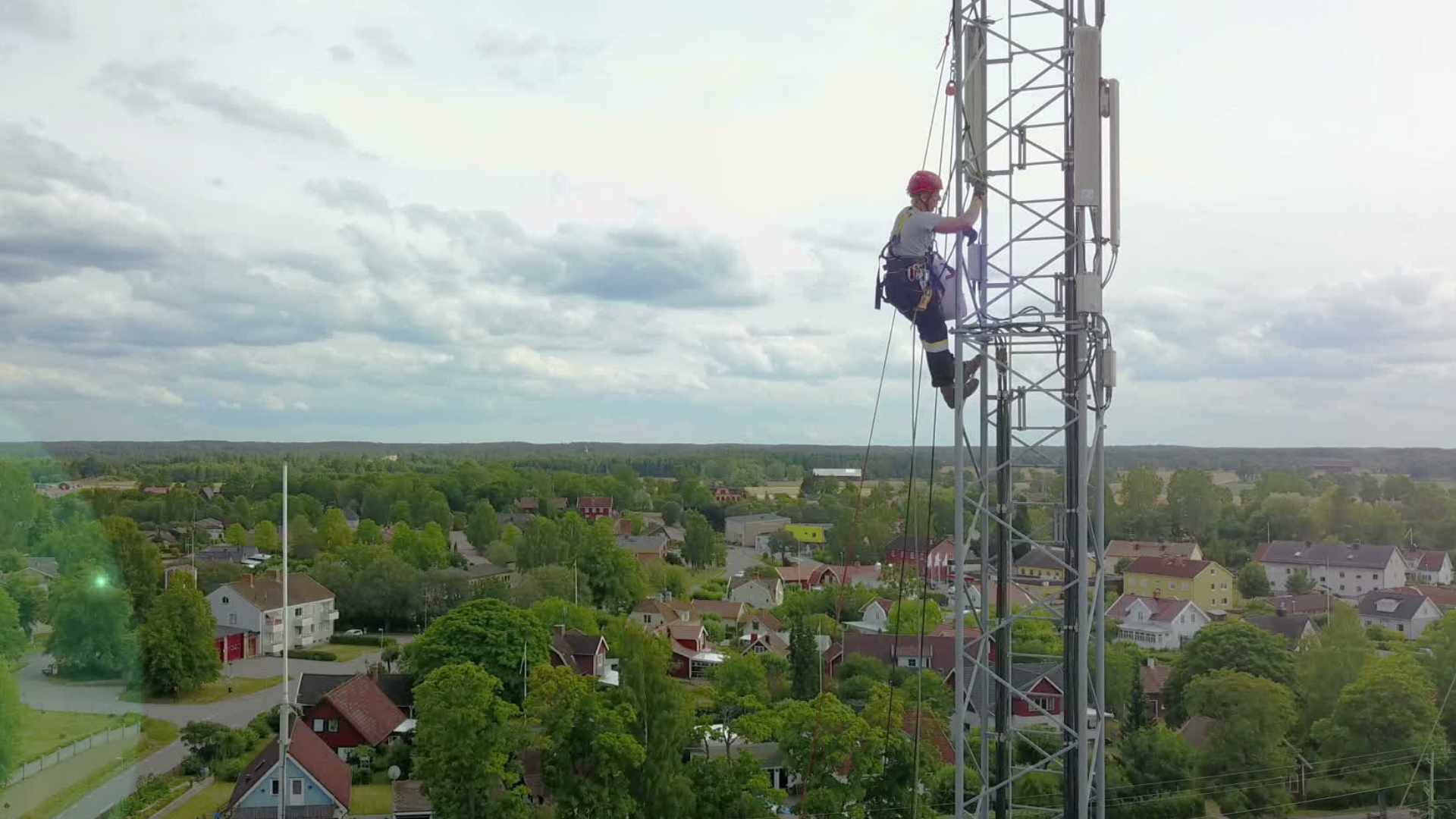Radio, Cellular, & Tower Equipment Installers & Repairers
Radio Frequency Technician (RF Tech), Radio Technician (Radio Tech), Tower Technician (Tower Tech), Two-Way Radio Technician (Two-Way Radio Tech)
What they do:
Repair, install, or maintain mobile or stationary radio transmitting, broadcasting, and receiving equipment, and two-way radio communications systems used in cellular telecommunications, mobile broadband, ship-to-shore, aircraft-to-ground communications, and radio equipment in service and emergency vehicles. May test and analyze network coverage.
On the job, you would:
- Inspect completed work to ensure all hardware is tight, antennas are level, hangers are properly fastened, proper support is in place, or adequate weather proofing has been installed.
- Run appropriate power, ground, or coaxial cables.
- Test operation of tower transmission components, using sweep testing tools or software.
Knowledge
Engineering and Technology
- computers and electronics
- mechanical
Communications
- telecommunications
- multimedia
Business
- customer service
- management
Arts and Humanities
- English language
Skills
Basic Skills
- listening to others, not interrupting, and asking good questions
- reading work related information
Problem Solving
- noticing a problem and figuring out the best way to solve it
Abilities
Hand and Finger Use
- keep your arm or hand steady
- hold or move items with your hands
Ideas and Logic
- notice when problems happen
- order or arrange things
Verbal
- listen and understand what people say
- communicate by speaking
Personality
People interested in this work like activities that include practical, hands-on problems and solutions.
They do well at jobs that need:
- Dependability
- Attention to Detail
- Integrity
- Cooperation
- Initiative
- Adaptability/Flexibility
Technology
You might use software like this on the job:
Spreadsheet software
- Microsoft Excel
Presentation software
- Microsoft PowerPoint
Analytical or scientific software
- AERONET calculator
- Zoho WebNMS Cell Tower Manager
Education
Education: (rated 3 of 5)
high school diploma/GED or
certificate after high school
usually needed
certificate after high school
usually needed
Job Outlook
Bright
New job opportunities are very likely in the future.
Explore More
- Audiovisual Equipment Installers & Repairers
- Electrical & Electronics Repairers, Commercial & Industrial Equipment
- Radio Frequency Identification Device Specialists
- Telecommunications Equipment Installers & Repairers
- Telecommunications Line Installers & Repairers
You might like a career in one of these industries:
See more details at O*NET OnLine about radio, cellular, and tower equipment installers and repairers.






